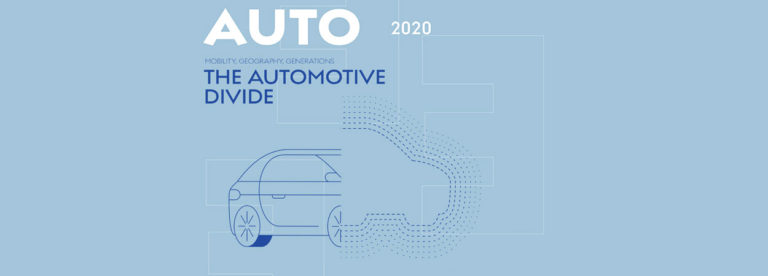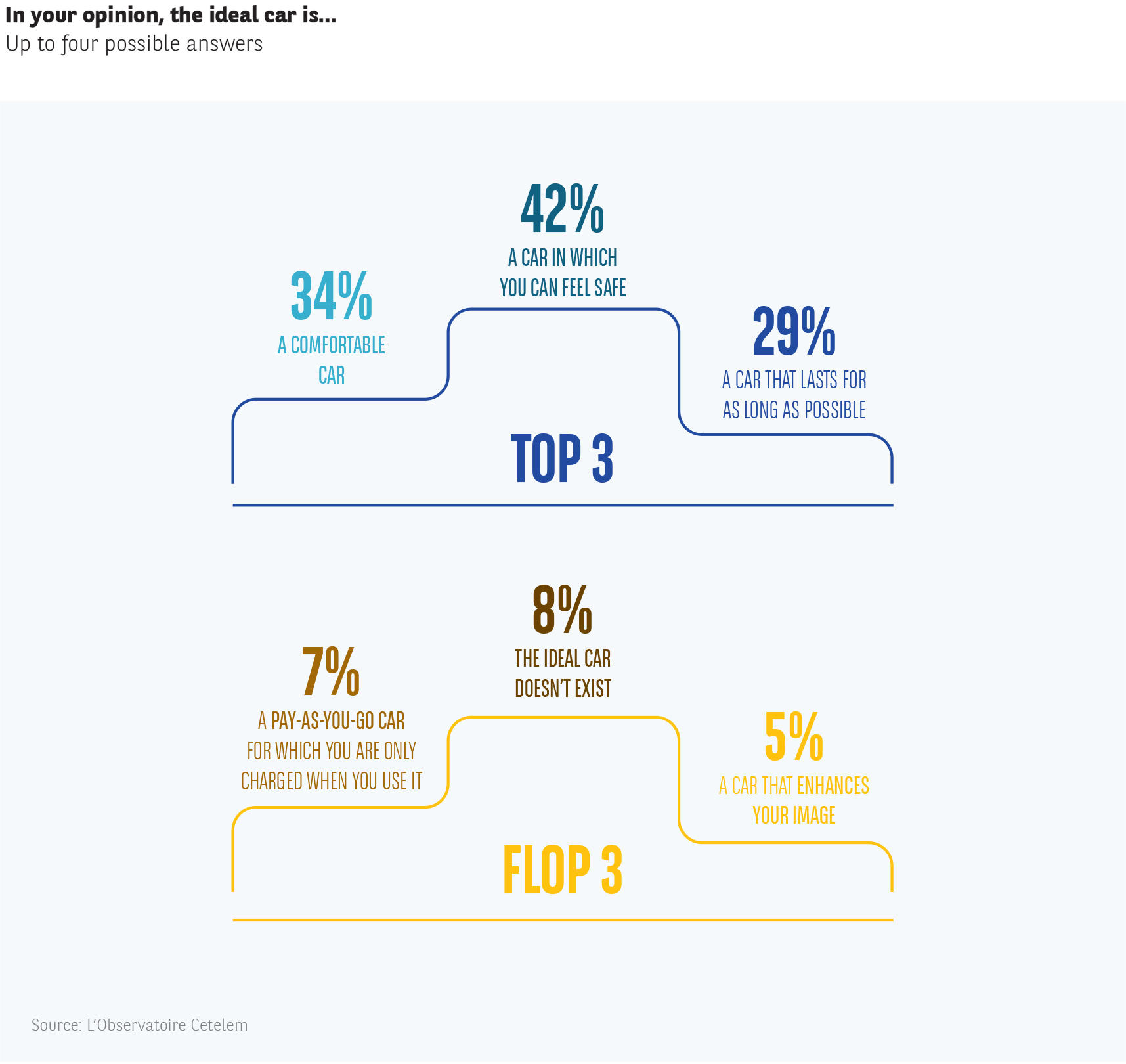A seriously ideal car


And yes, the ideal car does exist. Only 8% of the people interviewed believe the opposite. And yet, this ideal car’s strengths could not be more prosaic.
SOLID QUALITIES
A car is seen as ideal (Fig. 10), first and foremost, if it keep its occupants safe (42%), a feature deemed important by the majority of Spanish, South African and Japanese respondents. The ideal car should also be comfortable (34%). Here again, the Japanese are the most sensitive to this factor, followed by the Brazilians. Only 10% of Germans point to this feature, no doubt because they see German saloon cars as being inherently comfortable.
The next three features in the ranking generate roughly identical opinions. Just over a quarter of respondents believe that the ideal car hould be durable, cost as little as possible to buy and use, and be pleasant to drive.
It is worth noting that these features are particularly important to seniors and country dwellers.
FIG. 10 :
ENVIRONMENTALLY FRIENDLY, YES, BUT…
26% also state that a car should have a low environmental footprint. Americans and Brazilians are the least likely to highlight this feature, reflecting the lack of regard for the environment shown by their respective current leaders.
But given that 3% of respondents believe that owning a vehicle is disrespectful and harmful to the environment, we might conclude that motorists consider that cars themselves must be eco-friendly, rather than their owners.
NEITHER A STATUS SYMBOL NOR THE EMBODIMENT OF A VISION
At the bottom of the list of criteria that define the ideal car, the idea that it should be a symbol of one’s status is put forward by just 5% of respondents. This figure further highlights an irreversible shift that was already apparent in many previous L’Observatoire Cetelem surveys, including “I love my car”. Millennials, urban dwellers, the Chinese and the Japanese are a little more eager than average to enhance their image thanks to their car.
Finally, it appears that the ideal car is far from being associated with a triumphant modernity, both in its perception and in its use. 8% see it as being ultrahigh- tech and 7% imagine it as a pay-as-you-go service, for which one is only charged when it is used.

